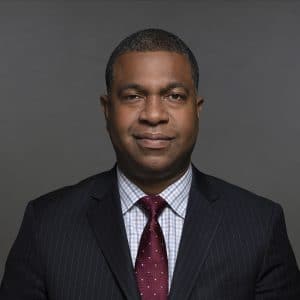Six powerful voices, six prominent political thinkers. In the aftermath of George Floyd’s murder and the wave of protests against racism and police violence across the country, ResetDoc has turned to a diverse set of internationally-renowned American scholars to gather their views on the impact of riots and the challenges ahead for the country on the eve of a crucial electoral appointment. To what extent is the endurance of American democracy truly in danger?, we asked. Here are their six takes.
Michael Walzer – Let there be leadership

American democracy was in much greater danger before the protests began. The number of people who have joined the demonstrations, their geographic range across big cities to very small towns, the readiness of so many protestors to come back day after day, the polls that show widespread support for the protests and for the reform of American law enforcement–all this is a sign of democracy’s strength. I worry about disorganization and the lack of discipline; Black Lives Matter is one of those left groups that is proudly leaderless. The mainstream churches and the big unions that supported the civil rights movement of the 1960s are much weaker now, without much national presence. What happens when the protests finally die down? Who will sustain the necessary political work? But the odds on defeating Trump are a little better now, and a Democratic administration will open the way for activity to its left–as Kennedy’s election did in 1960. There is so much to do: to stop environmental degradation, to upgrade health care, to confront racism and inequality. I am just a little more hopeful than I was a few weeks ago that we will be able to do, at least, something.
Karen Barkey – A permanent American Spring

Democracy is now eroding globally at a pace far more severe than any time since World War II. The United States claimed the mantle of democracy, and demanded the rest of the world live up to its standards. But it never had such high standards after all. This became all too clear with this American Spring. Confined to their homes, the American public saw their old and fragile, their essential workers, and hospital employees and doctors die by the tens of thousands. They experienced the destabilization of their livelihood, and understood that their government was totally incapacitated by hostility, incompetence and a politics of division. Having spent anxiety-riddled months reading and discussing the disparity between communities of color and limited means, and the disproportionate affect this pandemic continues to have on those communities, yet another deeply rooted form of systemic racism reared its head. This time it was the unremitting violence of white supremacy at the hands of the police, the far right, or the mere routine comportment of empowered and entitled white people who demonstrated once again to the world the depths of American dystopia.
How do we restore democracy? How do we create an inclusive civil and political society? How do we end this American Carnage? The demonstrations, the return of the people of all racial, ethnic, gender, age and socio-economic categories to the public square is encouraging. We are experiencing a renewed and exhilarating demand for change. Perhaps that Trump has been such a divisive figure, perhaps that the Republican Party has become so servile to him has pushed a wider spectrum of political positions and identities into the demonstrations, into oppositional action. This new coalition of the street cannot be, must not be, a passing, fleeting moment in our American Spring. It must be permanent. We must dig up the roots of White Supremacy, so deeply embedded in the fabric of our society, and plant the seeds of a new society in which justice is fully institutionalized. The immense crowds now must rediscover the tools requisite to rebuild our democracy. We must act through negotiated pacts, through electoral politics, through coalitions with educational partners. America has always thrived at the local level of community and politics. Let us rebuild with this new energy.
Spencer P. Boyer – A stress test for our democracy

Massive protests across the United States over police misconduct and a wave of proposals for changes in law enforcement practices and culture are about more than America’s long struggle with institutional racism. They also provide insights into the state of American democracy, which is undergoing an unpreceded stress test. The convergence of a national focus on unequal justice, a global pandemic disproportionately impacting communities of color, and the challenges associated with having elections during the age of Covid-19 make this moment particularly fraught.
Deep-seated structural racism that infects many aspects of the U.S. criminal justice system has always worked against democratic values. In the U.S., Black people are three times more likely to be killed by police than whites, and one in three Black men can expect to be incarcerated in their lifetimes compared to one in seventeen white men. Such racial disparities, among many others, stand in clear contrast to America’s supposed commitment to equal treatment for all.
Instead of meeting the moment, our top leadership has failed. The largely peaceful protests across the U.S. against racial injustice have been met by opposition from President Trump and tweets calling for “law and order!” On June 1st, protestors outside the White House were forcefully cleared to make way for the President to hold a photo shoot at a nearby church. Even one of his top military officials apologized for taking part in the spectacle.
In addition, high racial tensions in the U.S. continue to create opportunities for attacks from abroad on American democracy. Foreign actors, like Russia, have seized upon this tumultuous moment in American politics to launch sophisticated disinformation campaigns that magnify our differences and lack of trust in our democratic institutions. A Gallup poll earlier this year showed that 59% of Americans say they are not confident in the honesty of U.S. elections. These are dangerous numbers that can be exploited by organizations or individuals inside and outside of the U.S. for political advantage.
These are daunting challenges. But the robust societal response we are witnessing from a diverse array of Americans to police misconduct—and the commitment of numerous grassroots organizations, think tanks, and state-based groups to tackle threats to election integrity this fall—provide hope that the country understands that American values and global standing are at grave risk without action.
Sheri Berman – A unique chance for the American left

In many ways, these protests represent a triumph or vindication of American democracy. The murder of George Floyd is not only recognized as a horrific injustice by the vast majority of Americans, it is also recognized as reflecting the need for significant reforms of police forces and their relationship to the communities they are embedded in. Moreover, the breadth and depth of the protests themselves is astonishing–they have occurred in all 50 states, in urban and rural areas, and have been demographically diverse. The President’s ham-fisted attempt to meet the protests with violence and repression, and to try to rationalize this by whipping up fear of anarchy and lawlessness caused by real but limited rioting and property destruction, has thus far failed. Indeed, it has caused a backlash, with members of the military and even the Republican party openly rebuking him. All of this has contributed to making Trump’s chances of re-election lower than at any point during his Presidency.
A danger now though is that rather than consolidating their gains, the left in general and the Democratic party in particular will collapse into infighting. By virtue of its widespread and relatively leaderless nature, the protests have called for very diverse policies–some of which have widespread support, others do not. While some things can not be compromised on–justice for George Floyd and others victims of police violence, deep structural reforms of policing and more, what’s crucial for the future of American democracy is eliminating the main threat to it–Trump, the version of the Republican party that supports him, and more generally the hindrances to tackling the inequalities built into American society and economy today. But doing this will require bringing a majority of Americans onboard, and doing that will require protestors and the left to walk a fine line between reasonable compromises and commitment to principles.
Jonathan Laurence – The creative power of crises

The current wave of protests grants the United States a chance to repair its original sin: that black lives have long mattered less than white lives. Even after emancipated slaves were no longer counted as three-fifths a man, after the Civil Rights Act and a generation of Affirmative Action, it took a teenager with a smartphone — not the Congress or the Supreme Court — to restore the missing personhood.
Whatever one’s opinion of American “greatness,” its birthright meant less for millions of Americans who have felt unsafe from discrimination and abuses of power for generations. For over fifty years, increasing access to political participation and social rights was overshadowed by inadequately enforced civil rights. Unequal chances at education and income were joined with a terrifying reality of extrajudicial executions by law enforcement and armed whites who “stood their ground.” Even the first term of the first African-American president was marred by events like the arrest of a black professor entering his own home and the murder of Trayvon Martin returning from a trip to the store.
This spring’s political mobilization has also been a balm for opponents of the Trump administration’s upending of American political norms. In the last three and a half years, no single affront had ever provoked a unified outcry. The institutional stalemate and polarization shook the balance of powers to the core. Neither Congress nor the Supreme Court have meaningfully checked the authority asserted by the Trump presidency. A sense of political mummification set in during the lockdown, as Coronavirus briefings became indistinguishable from campaign rallies, with no end in sight. The death of George Floyd mobilized an inert and dispirited political opposition to participate in protest and demand change, propelled by the pent-up energy of the last months.
Covid-19 has been described as a comorbidity of the ailing US body politic, accelerating the decline by attacking fissures and fault-lines. Together, the Trump Presidency and the virus have brought into relief a range of imminent threats to American democracy. Alongside racial inequities and widening social divisions, a class-based health care system remains a fact of life, and there is little compensation for the ongoing sacrifices made by “essential workers.” Facing such intractable issues, it bears recalling that the modern Western state originated in times of deep crisis and conflict. Epidemics in 16th century Venice helped drive government regulation of public health and social policies. The Depression and Second World War were followed by grateful acknowledgments like the G.I. Bill and a welfare apparatus that accounts for a quarter of government spending.
What kind of State will the Coronavirus and the Black Lives Matter movement leave behind? Will a universal income or public health care become as self-evident as a Social Security pension? How will new awareness of a class of essential workers change who is meant by “We the People”? The answers to these questions will resonate across the United States and overseas, like the civil rights movements before it. “I Can’t Breathe” is chanted in protests calling for accountable government around the world.
Last century’s urban policies were allegorical and simplistic — Broken windows policing, three strikes and you’re out, the war on drugs, an eye for an eye — and they incurred an inordinate socio-economic cost. Legislatures are now pushed to examine the old practices with new eyes. Cities everywhere are reconsidering how to thoughtfully preserve their monuments and their past. The alternative to this reckoning is to ponder instead the litany of 21st-century indicators flashing red while the ship went down: incarceration and death penalty disparities; police militarization; mass shootings; the diverging Electoral College and popular vote; the blending of reality television and politics. After decades of debate over regime change elsewhere, the emerging national movement signals a return to the work of improving democracy at home.
Rahsaan Maxwell – How long is ‘us versus them’ sustainable in democracy?

Professor of Political Science at the University of North Carolina, Chapel Hill
2020 began in dramatic fashion and shows no sign of slowing down. The world is living through a historic moment where established norms are questioned and institutions are challenged. If American democracy is to prove itself worthy of survival in the 21st century, it must do a better job of balancing competing interests.
Democracy is all about process. The peaceful transfer of power, laws, checks and balances and courts. Democracy cannot guarantee optimal policy outcomes, peace or prosperity. Instead, democracy rests on the argument that its procedural focus makes it less vulnerable to corruption and will outperform other systems on average.
Unfortunately, people do not live their lives on average. When calamity strikes and democracy is too slow to respond, people look to other options. That was the great lesson of the 1930s, but it can and will be learned again.
In recent years, there is plenty of evidence that Americans are not happy with the status quo. The massive mobilization of Black Americans over the past weeks has expressed frustration with decades (if not centuries) of white supremacy and systemic racism. The depth of the pain resonated with Americans of all races and has prompted remarkable liberal shifts in public opinion on race and what appears to be unprecedented swift action by the US Congress.
But Black Americans are not alone in being dissatisfied with the American status quo. The 2018 mid-term elections were marked by a dramatic surge of political activity among women, erupting against decades (if not centuries) of sexism and patriarchy. Two years before that, white (often rural and/or working-class) voters mobilized in the 2016 election to protest their exclusion in a 21st century America where prosperity was concentrated in multicultural urban enclaves.
Each of these moments has been inspired by deep needs that must be addressed. The optimist would say that our democratic system has responded in each case and that this indicates a well-functioning system. The pessimistic among us would argue that the depth of anger in these protests is evidence that America’s democracy is too ineffective to govern and may soon inspire authoritarian responses.
Moreover, each of these historical moments has been filtered through the political polarization of Red and Blue Americas. Some argue that this polarization is spreading into all aspects of our lives, including where and how we socialize, worship and reproduce, and whether or not we wear face covering during a pandemic. We will never agree on everything, but there are increasing calls for the country to split, in ways that did not seem possible a few decades ago.
Nobody can see the future and I am not predicting the fall of American democracy. However, the current pandemic is clearly an exceptional historical moment when many unthinkable things are possible. If American democracy is to prove itself viable in the 21st century, it will need to stop the cycle of aggrievement by providing people with something deeper than short-term band-aids. American democracy will need to finally live up to the vaunted ideals of ‘we the people’ instead of ‘us versus them’.
Cover Photo: Jason Redmond / AFP
If you liked our analyses, stories, videos and dossiers, follow us on Facebook and Twitter and share our contents.
To get all of the latest, sign up for our newsletter (twice a month)


